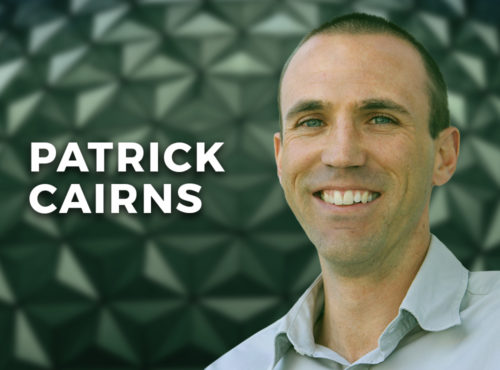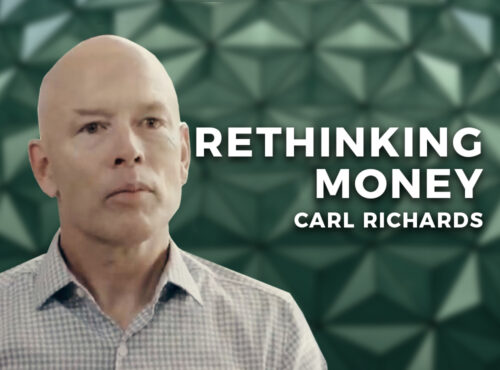
It’s now half a century since the American writer Alvin Toffler released the best-seller Future Shock, about what happens to societies overwhelmed by rapid change. While not claiming to be prophesy, Toffler’s book still resonates 50 years on.
“Change is avalanching upon our heads and most people are grotesquely unprepared to cope with it,” Toffler wrote in 1970.
Toffler’s text predicts accelerating change in technology, communication, culture, working patterns and the environment. If anything, this prediction underestimated the transformation of the globe in the subsequent 50 years.
The human dimension
But Future Shock and its sequels were less about shiny new inventions themselves, and more about what rapid change does to human beings. It particularly relates to our capacity to adapt to situations we have no reference point for.
“The acceleration of change does not merely buffet industries or nations,” Toffler wrote. “It is a concrete force that reaches deep into our personal lives.”
Given our limited capacity for accommodating rapid change and given we cannot ever know the future, Toffler advocates for a certain type of planning. He defines this as being clear about what is most important to us and deciding how much time and emotional energy we can devote to things beyond our control.
This “planning” process is not intended to be a shopping list of exactly what will happen and when it will happen. Instead, it is a way of making explicit to ourselves our assumptions about the future and how we might react if they come to pass.
“The issue for any individual attempting to cope with rapid change is how to maintain himself within the adaptive range,” Toffler wrote. ”If we search for clues rather than certainties, even these primitive devices can help us moderate or channel the flow of change in our lives.”
How to plan for change
This is very close to the goal of individual financial planning. Of course, no one knows what will happen in financial markets day to day, or even year to year. Just look at the course of markets in 2020 alone.
Amid a global pandemic, rising nationalism and populism, the backlash against globalisation, rapidly warming climate and the threats to the post-WWII institutional framework, people are understandably anxious about change.
How can we create a coherent personal financial plan against the backdrop of such profound and destabilising global volatility? The answer to that question is to reframe how we think about the idea of planning.
A plan begins with identifying your values, those things that are most important to you. From there, it defines general and then specific goals. The next step is to drill down into each of these and devise strategies to help get you there.
Of course, nothing will stay constant. After all, the earliest attempts at mapping the world soon became redundant as new discoveries were made. Likewise, the exterior world and our own lives are in a constant state of flux.
But we have a better chance of adapting if we settle first on what we value most and what we want to give the greatest attention to. The essential framework may stay the same, but the details can be adapted as circumstances evolve.
Future shock absorbers
Toffler called these strategies “future shock absorbers”. It means thinking less about what people “are” and more about what they are “becoming”. It assumes the idea of transition as a constant and builds flexibility into that.
Take for instance the idea of retirement. Few people nowadays work for 40 years, then accept the gold watch and settle in to watch the grass grow. Retirement is more a process than an event. Our working lives alter, rather than stop altogether.
You can see this also in the reaction of many companies to the pandemic. Decades of resistance to people working from home has gone out of the window overnight because the transformation of exterior circumstances.
Likewise, a realisation about the scale of the crisis we face via man-made climate change and diminishing biodiversity is accelerating a shift by many institutional and individual investors toward sustainable investment strategies.
So in our personal lives, in the corporate world and in global financial markets, the future is challenging us to make changes.
Ultimately, the New Future Shock is very much like the Old Future Shock. Change is all we can expect. And managing that change starts with a financial plan that gives us the flexibility and capacity to adapt.
Want something else to read? Here are some more articles we think you’ll find interesting:
Should you invest with Terry Smith?
How to protect your pension from scammers
An investment lesson from the US election
Four financial priorities for young adults
NEED AN ADVISER?
If you need a financial adviser, we may be able to help.
Wherever you are in the world, we will try to put you in contact with an adviser in your area whom we know personally, who shares our evidence-based investment philosophy and who we feel is best able to help you. If we don’t know of anyone suitable we will tell you.
We’re charging advisers a small fee for each successful referral, which will help to fund future content.
For compliance reasons, this service is currently unavailable to readers in the US.
Click here and let’s get started.









